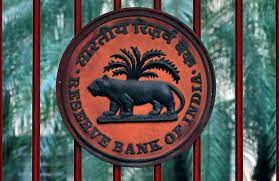In Just 18 Months, New Zealand Experiences A “Double Dip” Recession
You are not delusional if you feel poorer than you really are in New Zealand. According to Statistics New Zealand, the economy experienced a recession in the latter part of last year. The GDP shrank by -0.1% and -0.3% in the quarters ending in December and September, respectively. According to Westpac’s latest economic report, the record high levels of immigration may mean that GDP per person has decreased by over 4% from its peak in mid-2022.

What political implications does this have, and what steps can the coalition take to address it? The incoming administration can place the responsibility on the previous one since the numbers are retroactive, but that won’t appease the majority of people for very long. Since the election, the National-led administration hasn’t had a honeymoon. In late February, an IPSOS survey found that New Zealanders gave the coalition’s performance a 4.6 out of 10 rating, which is comparable to the Labour government’s (4.7) rating just before the October 2023 general election.
In Just 18 Months, New Zealand Experiences A “Double Dip” Recession
internal inconsistencies Recession also implies less. When Finance Minister Nicola Willis finalizes her first budget, which she will present on May 30, something logical has to go. The nation’s projected tax cuts might make inflation worse or cause it to slow down. Even though inflation has been declining, it is still far from the desired range of 1-3 percent.
In December, that percentage was 4.7%. In the event that income is lower than anticipated, tax cuts would have to be financed by borrowing money, further expenditure cutbacks, or more revenue. The last possibility is implausible considering how the unfunded tax cuts that were promised accelerated the political downfall of UK prime minister Liz Truss in 2022. Willis and Luxon must make some challenging financial choices. Additionally, there is pressure to uphold the coalition commitments, particularly from Winston Peters, the leader of NZ First. Peters’s repeated publication of an estimated NZ$5.6 billion “gap” between National’s election pledges and “current forecasts” has already complicated matters for Willis.
Absence of policies pertaining to innovation and skills People seem to be losing faith in the new administration and are having difficulty making ends meet in the meantime. The National Party has often been seen as having more ability than other parties to handle the economic issues, according to the IPSOS survey. However, National is allied with two other parties, each of which anticipates the application of their own programs. However, there are incentives for all three sides to persuade the majority of people, if not all of them, that they can accomplish three interconnected goals:
Provide a responsible budget, boost production and economic efficiency, and encourage creativity and skill development. We should hold off on making a decision on the first point until we see the budget. Regarding the second, a bill that will expedite consenting for projects that have been authorized is being passed by the government. The administration will also argue that eliminating the pay-equity regulation and reviving 90-day employment trials for companies employing more than 20 people would enhance hiring and investment.
However, since the fast-track bill gives ministers exceptional powers, it is drawing criticism from legal experts and environmental organizations. Trade unions are vehemently against the reforms to employment legislation. Last but not least, it seems that the government lacks knowledge on how to be ready for the impending tsunami of AI-driven change. While research and development as well as postsecondary education would be prioritized here, there are no new policy measures pertaining to advanced research or skills training.
Much is at stake for Budget 2024. Meanwhile, there is absolutely no fiscal prudence, productivity, or creativity gained by the restoration of the tax deduction for interest payments on rental properties. It only helps those who have previously constructed and sold their goods. Furthermore, it’s very unlikely to result in reduced rents—contrary to Christopher Luxon’s assertion that it would exert “downward pressure” that tenants would be appreciative of. Despite the National Party’s pre-election rhetoric, no administration is able to “grow the economy” in a literal sense. When individuals create more goods that other people are willing to pay for more effectively, economies expand.
The productivity of people, businesses, and the economy as a whole may be positively or negatively impacted by the acts and policies of the government. The current administration’s economic legitimacy is under more scrutiny than would often be the case thus early in its first term, raising concerns about its political viability. Luxon and his group have several options to change that. However, sooner rather than later, measures that will significantly raise people’s material quality of life are what they need and desire. Much will rely on the 2024 budget.







